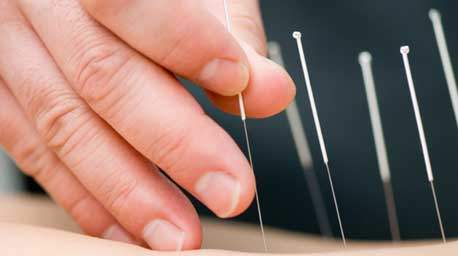For the past six years, Pacific College of Oriental Medicine (PCOM), as part of the Illinois Acupuncture Federation and in collaboration with the Illinois State Medical Society (ISMS), the Illinois Chiropractic Society (ICS), and the Illinois Osteopathic Medical Society (IOMS), as well as many tireless individuals, has been working toward securing Illinois state legislation that regulates safe and effective acupuncture treatments for the public.
Announcement of Legislative Success
PCOM is pleased to announce the success of this movement. On April 26th, 2014, the College received word that after thoughtful, detailed, and carefully considered review of the Acupuncture and Physical Therapy Practice Acts, the Illinois Department of Professional Regulation agreed with PCOM and coalition concerns, and determined that the practice of Dry Needling was NOT in the scope of practice of physical therapy as the acts are currently written for Illinois.
“We had to be really vigilant and persistent,” says PCOM alumnus and lobbyist David W. Miller, MD, LAc (President, Illinois Acupuncture Federation; Legislative Director, ILaaom, member, ISMS), who helped spearhead the movement.
Protecting Public Safety and Professional Standards
One of the primary missions of all of the Illinois professional acupuncture organizations is to assure that acupuncture is safe and that providers using acupuncture needles are well trained to provide that service. PCOM is proud to have played a part in the recent decision that Intramuscular Manual Therapy, also known as “Dry Needling”, cannot be simply added to the scope of practice of physical therapy by administrative interpretation. The coalition believes this addition would have represented a significant scope expansion for physical therapists, and such changes should be taken to the legislative arena where they belong. “It was indeed a collaborative effort,” Miller says, “we tried every conceivable approach to have this addressed, and ultimately joined with chiropractors, medical doctors, and osteopaths to get the issue the attention it deserved.”
It has been PCOM’s contention that Intramuscular “Dry Needling” as performed currently by physical therapists does not provide safe and effective treatment to the citizens of Illinois. “This is a win for the entire acupuncture profession,” says PCOM Chicago Campus Director, Ed Lamadrid, LAc. “It is an important step in preventing physical therapists from performing acupuncture [by Illinois definition] without formal training.”
Are you interested in becoming a certified acupuncture professional?
Visit the links below to explore our specialized acupuncture programs at a campus near you:
The Importance of Educational Standards and Oversight
Addition of this technique without any educational standards or meaningful oversight of the practice would expose the public to undue risk of harm. “Our passion helped us win out—because we truly knew we were in the right. We want patients to have access to effective treatments with practitioners who are thoroughly trained in the techniques they are providing,” says Miller.
PCOM thanks the Department for its attention to this issue, as well as all the groups and individuals who have helped in this effort. Particular thanks on this effort are extended to Steve Morrill and Curt Fiedler of Morrill and Associates who have helped guide communications and who have spearheaded this work for all of the professional communities, Lindy Camardella and Claudette Baker who joined Dr. Miller in facilitating this process, as well as to Jeannette Hoyt who spent many hours organizing and promoting this effort, and Mary Rogel for being a champion of the community for many years.
In addition, thanks to the members of the Illinois Acupuncture Federation (IAF): ILaaom (the Illinois Association of Acupuncture and Oriental Medicine), and AAAA (the Asian American Acupuncture Association) for ongoing support and leadership. Thank you to the ISMS, ICS, and IOMS as well for supporting this effort, as well as the senators and representatives of Illinois who contacted the Department on this matter.
Featured Posts:

